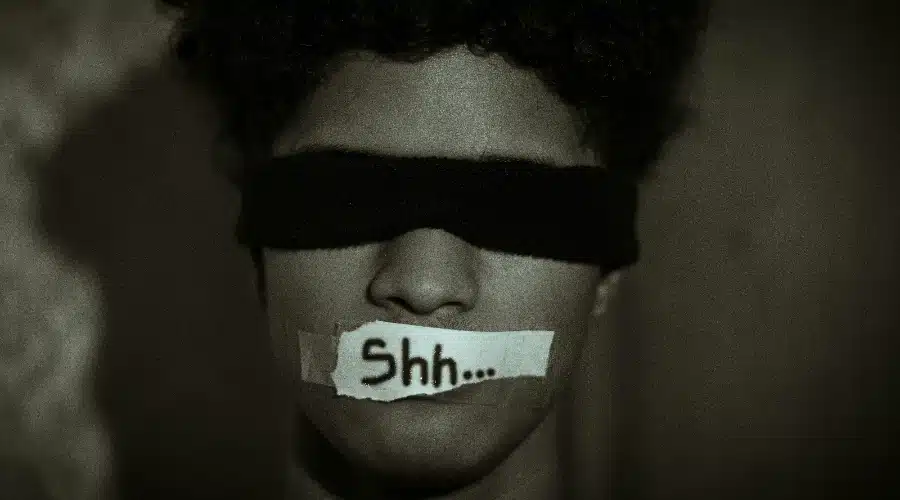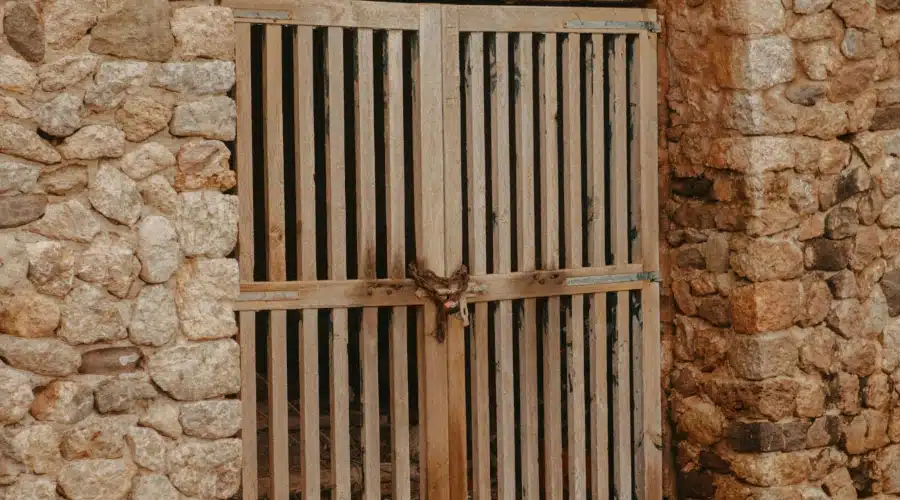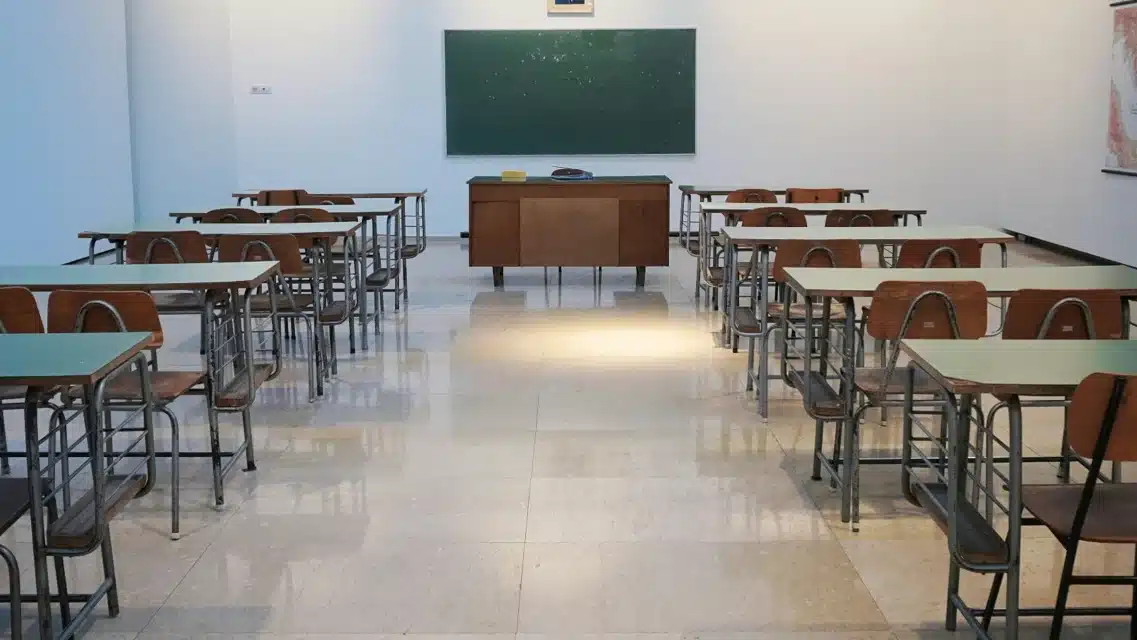School was a battlefield for me. As a child grappling with dyslexia and OCD in the 1970s, I faced an education system utterly blind to minds like mine—minds that refused to think in neat little boxes. My brain has always rebelled against containment. I leap across fences, connect seemingly unrelated dots, and question premises others take for granted. And academia—with its rigid specialisations and intellectual tribalism—was everything my mind fought against.
The recent assault on American universities has stirred these old wounds. Watching the dismantling of diversity programmes, threats to elite university funding, and legal attacks on supposedly "Marxist" institutions, I find myself in an unexpected position. I don't endorse these tactics or agree with their intent, but I understand the urge to disrupt. The system desperately needs transformation—not destruction, but honest, fundamental change.
This isn't about American politics. It's about something far more profound: the mythology we've built around higher education. It's about the grand illusion of objectivity, the stories we tell about freedom of thought, and the painful reality that these ideals are withering before our eyes. What follows is my deeply personal challenge to four supposed pillars of academia: freedom of speech, academic freedom, cognitive diversity, and unbiased education.
The crumbling cathedral: what we lost when universities lost their way
Picture the majestic spires of Oxford, the hallowed halls of Harvard, the timeless sandstone of the Sorbonne. We speak of these places with reverence, as though they were sacred temples of enlightenment. And indeed, that's how they present themselves—as fortresses defending human knowledge and nurturing our brightest minds.
But lift the academic gowns and peer beneath the mortarboards, and you'll find something troubling. These supposed sanctuaries of wisdom have become something else entirely—something that betrays their foundational promise.
The university where ideas should clash, and spark has become the university where conformity is rewarded, and dissent is punished. The change didn't happen overnight. It crept in slowly, draped in noble intentions and high-minded rhetoric. But the result is the same: our centres of learning are increasingly centres of intellectual compliance.
The four pillars that should uphold these institutions—freedom of speech, academic freedom, cognitive diversity, and unbiased education—have become hollow facades. Freedom of speech has devolved into a performative slogan, invoked but rarely honoured. Academic freedom withers under an invisible but suffocating orthodoxy. Cognitive diversity—the true engine of innovation—is sacrificed at the altar of intellectual homogeneity. And the noble pursuit of unbiased education bends to the whims of political and financial pressures.
This isn't abstract theory. This is the lived reality of students and professors who find themselves caught in systems that punish originality and reward obedience. This is about real minds being constrained, real questions going unasked, real human potential being squandered.
When silence became safer than speech
Remember when universities were cauldrons of debate? When students would gather in smoky common rooms and argue passionately about politics, philosophy, and the meaning of life? When professors would challenge orthodoxies and students would challenge professors?
Those days are fading into sepia-toned memory.
Today's university campus too often feels like a place where certain questions simply cannot be asked, and certain thoughts cannot be expressed. The atmosphere chills free expression not through explicit prohibition but through social punishment, professional ostracism, and the creeping fear of becoming a pariah.
I've been in meetings where professors glance nervously at one another, each waiting for someone else to speak the obvious but dangerous truth. I've watched brilliant young scholars self-censor their research questions because exploring certain territories—no matter how rigorous the methodology—would brand them as heretics. I've seen students write papers that parrot their professors' views rather than risk exploring their own genuine questions.
This is not the intellectual tradition of Socrates, who questioned everything and paid the ultimate price for it. This is not the tradition of John Stuart Mill, who understood that even wrong ideas deserve a hearing, because in confronting them we sharpen our understanding of the truth.
Mill's wisdom feels particularly poignant now: "If all mankind minus one were of one opinion, and only one person were of the contrary opinion, mankind would be no more justified in silencing that one person, than he, if he had the power, would be justified in silencing mankind."
Yet silencing is precisely what's happening—not through hemlock or imprisonment, but through the thousand small ways we signal to dissenters that their questions are unwelcome, their perspectives problematic, their very curiosity somehow immoral.
When I walk through university quads today, I don't hear the passionate clash of ideas that once defined these spaces. The silence isn't peaceful; it's stifling. It's the silence of minds afraid to speak.

The professorial straitjacket
If freedom of speech is dying in universities, academic freedom—its scholarly cousin—is already on life support.
Academic freedom is meant to be the scholar's shield, protecting the pursuit of knowledge from interference by power. It's the principle that lets researchers follow evidence wherever it leads, even if the destination challenges prevailing orthodoxies. It's what allows teachers to introduce students to difficult, controversial ideas without fear of reprisal.
But today's academics increasingly work within invisible constraints that would have horrified Enlightenment thinkers like Kant and Voltaire. These philosophers championed the unfettered pursuit of knowledge as the engine of human progress. Today, that engine sputters and stalls, clogged by ideological conformity.
I've watched it happen to colleagues—brilliant minds whose research veered into forbidden territory. Not because their methods were sloppy or their evidence weak, but because their questions or conclusions challenged the prevailing narrative. Some were denied tenure. Others were professionally isolated. Many simply gave up and redirected their work toward safer questions.
This intellectual narrowing doesn't happen through dramatic acts of censorship. There are no book burnings in university squares. Instead, it happens through funding decisions, hiring committees, peer review processes, and social pressure. The message is clear: stay within these boundaries if you want to survive in academia.
The parallels with authoritarian thought control are unsettling. In Stalinist Russia or Mao's China, intellectual conformity was enforced through violence and terror. In today's universities, the methods are gentler but the effect surprisingly similar—a narrowing of acceptable thought, a homogenisation of intellectual output, and the slow death of truly bold thinking.
When I speak with young academics today, they don't dream of making paradigm-shifting discoveries or challenging fundamental assumptions in their fields. They dream of navigating the system successfully, of publishing in the right journals and pleasing the right gatekeepers. Their ambition has been redirected from expanding human knowledge to advancing their careers within increasingly rigid intellectual constraints.
This is the professorial straitjacket—invisible to outsiders but painfully real to those who wear it.
Breaking Free from Plato's Academic Cave
Two thousand years ago, Plato described prisoners chained in a cave, mistaking shadows on the wall for reality. It remains our most powerful metaphor for human ignorance—and a perfect description of what's happening in today's universities.
Modern academia has created its own version of Plato's cave. Students enter bright-eyed and curious, only to be taught to see the same limited set of shadows, to interpret them in the same approved ways, and to mistake this narrow slice of intellectual possibility for the entire universe of ideas.
I've experienced this firsthand—the slow narrowing of young minds that should be expanding. Students learn quickly which questions earn praise and which earn uncomfortable silence or outright rebuke. They absorb not just facts and theories but boundaries—invisible lines they shouldn't cross if they want to succeed.
This cognitive limitation isn't just a failure of education; it's its antithesis. True learning requires encountering ideas that challenge you, perspectives that unsettle you, facts that force you to reconsider your most cherished beliefs. When education instead confirms what you already think, shields you from disagreement, and tells you that challenging certain ideas is itself harmful, it creates not educated citizens but well-credentialed prisoners—still chained in Plato's cave, still mistaking shadows for reality.
The consequences extend far beyond campus. When our future doctors, lawyers, engineers, and political leaders emerge from universities with minds trained to think within narrow parameters, they carry these limitations into every domain of society. Complex problems that require fresh thinking and diverse perspectives get squeezed into ideologically acceptable frames, limiting our collective capacity to solve the overwhelming challenges of our time.
What makes this particularly heartbreaking is that universities were once explicitly designed to break the chains of mental conformity. They were meant to be places where young minds encountered the full spectrum of human thought, where they learned not what to think but how to think.
When I speak with students today, I'm often struck by a peculiar combination of intelligence and constraint. They're bright, articulate, and knowledgeable within certain parameters, but many seem afraid to venture beyond approved frameworks. They've been taught that certain conclusions are not just wrong but morally suspect. They've learned to self-censor their own thoughts before they've fully formed them.
This isn't education. It's sophisticated indoctrination. And it's happening not in authoritarian regimes but in the institutions that should be our greatest bulwarks against such intellectual captivity.
The academic panopticon: universities as mind jails
To call universities "mind jails" sounds hyperbolic—until you've experienced the subtle but powerful ways they constrain thought.
Jeremy Bentham's panopticon was a prison designed so inmates would never know when they were being watched, forcing them to act as if under constant surveillance. Today's universities have created an intellectual panopticon where students and faculty alike exist in a state of perpetual self-surveillance, constantly monitoring their own thoughts against ever-shifting standards of acceptability.
I've felt this chilling effect in my own thinking. There are questions I've hesitated to ask, even in the privacy of my own mind, because I've internalised the boundaries of acceptable inquiry. And if I—with all my scepticism and resistance to orthodoxy—feel this constraint, imagine how it affects more conformist minds.
The university-as-mind-jail operates through a sophisticated system of incentives and punishments. For students, the rewards come through grades, recommendations, and social acceptance. For faculty, it's tenure, promotion, publications, and collegial respect. The entire structure encourages intellectual compliance and punishes deviation.
This system bears a disturbing resemblance to the thought control depicted in dystopian literature like Orwell's "1984" or Huxley's "Brave New World." In Orwell's nightmare, critical thought is crushed through fear and force. In Huxley's, it's engineered away through pleasure and distraction. Modern universities have created a hybrid of these approaches—combining social pressure and administrative control with the rewards of academic advancement and belonging.
The most insidious aspect of this system is that it portrays itself as the opposite of what it is. Universities still claim to champion free inquiry and critical thinking even as they systematically undermine these values. This cognitive dissonance creates a surreal environment where the rhetoric of intellectual freedom masks the reality of intellectual confinement.
When students and faculty internalise these constraints—when they begin to police their own thoughts to comply with unwritten rules—the mind jail has done its work. No external force needs to censor them because they've learned to censor themselves.
This transformation represents a profound betrayal of what universities are meant to be. Instead of liberating minds, they're constraining them. Instead of expanding the boundaries of thought, they're enforcing them. Instead of preparing students to question authority, they're teaching them to submit to it.

Truth under siege: the battle for unbiased education
When I was a student, my teachers certainly had political views, but they didn't wear them as badges or impose them as orthodoxies. There was a shared commitment to pursuing truth wherever it led, even if the destination made us uncomfortable.
Today, this commitment to unbiased inquiry faces an onslaught from multiple directions. External funding increasingly comes with explicit or implicit ideological strings attached. Political pressures—from both left and right—attempt to shape curriculum, research priorities, and campus culture. And within academia itself, objectivity is increasingly viewed with suspicion, sometimes even dismissed as an impossible or undesirable goal.
More and more research questions vanish from academic discourse not because they've been answered or proven irrelevant, but because exploring them has become politically hazardous. I've seen funding flow abundantly to projects that confirm preferred narratives while equally rigorous work that challenges those narratives struggles for support. I've observed hiring committees select candidates based on ideological alignment rather than scholarly excellence.
This environment eerily echoes historical periods when knowledge was subordinated to power. During the Renaissance, wealthy patrons dictated the direction of art and science, ensuring that creativity served their interests. In authoritarian states throughout history, education has been explicitly designed to produce citizens who think in state-approved ways.
What's different—and particularly troubling—about the current situation is that it occurs within institutions explicitly dedicated to the pursuit of truth. The university was conceived as a space insulated from external pressures precisely so that knowledge could develop according to its own logic, not the demands of power or profit. When universities themselves abandon this commitment, something precious is lost.
The consequences extend far beyond academia. When our knowledge-producing institutions become compromised—when they select, present, and interpret information through ideological filters—our collective understanding of reality becomes distorted. At a time when humanity faces existential challenges requiring clear-eyed assessment of facts, this distortion is something we cannot afford.
The battle for unbiased education isn't about left versus right or tradition versus progress. It's about whether we still believe in the possibility and value of pursuing truth for its own sake, following evidence wherever it leads even when the destination challenges our preconceptions. It's about whether knowledge should serve power or hold it accountable.
Rekindling the flame: how we can save academia before it's too late
I don't write these words as an attack on universities. I write them as a desperate plea to save institutions I love—institutions that, despite their flaws, remain essential to human progress and flourishing.
The university at its best is a miraculous invention: a space where minds can explore without immediate practical constraints, where knowledge can develop according to its own logic, where young people can encounter the full spectrum of human thought and emerge transformed. This vision of the university isn't obsolete; it's more necessary than ever in a world of increasing complexity and polarisation.
But reclaiming this vision requires honest acknowledgment of how far we've strayed from it. It requires courage from those within academia to challenge the new orthodoxies, to defend genuine diversity of thought, to recommit to the pursuit of truth over the demands of ideology.
There are encouraging signs of resistance—professors forming alliances to defend academic freedom, students creating their own forums for open discussion when official channels become constrained, new institutions emerging with explicit commitments to intellectual diversity and unfettered inquiry.
These efforts need our support. They need administrators brave enough to stand against both external pressures and internal demands for conformity. They need donors willing to fund truly independent research.
They need students courageous enough to ask uncomfortable questions and challenge their own assumptions.
Most of all, they need a cultural shift in how we think about education—away from the idea of universities as spaces for ideological alignment and back toward the vision of universities as arenas for intellectual exploration.
This isn't just about saving abstract principles. It's about saving minds—real human minds that suffer when constrained, that wither when denied the full spectrum of intellectual possibility. It's about ensuring that the next generation inherits not just our knowledge but our capacity to expand it, challenge it, and transform it.
The stakes couldn't be higher. Universities shape the minds that will solve—or fail to solve—the existential challenges of our century. They form the citizens who will either strengthen or undermine democratic societies. They create the intellectual tools we'll use to navigate an increasingly complex future.
If universities become mind jails rather than spaces of intellectual liberation, we lose something irreplaceable: our collective capacity to think beyond the boundaries of the present moment, to imagine alternatives to the status quo, to create futures better than what we've inherited.
Let us reject this impoverished vision of education. Let us recommit to universities as they should be: not comfortable spaces of conformity but challenging arenas of intellectual growth; not enforcers of orthodoxy but liberators from it; not mind jails but mind expanders.
Our future depends on it.



